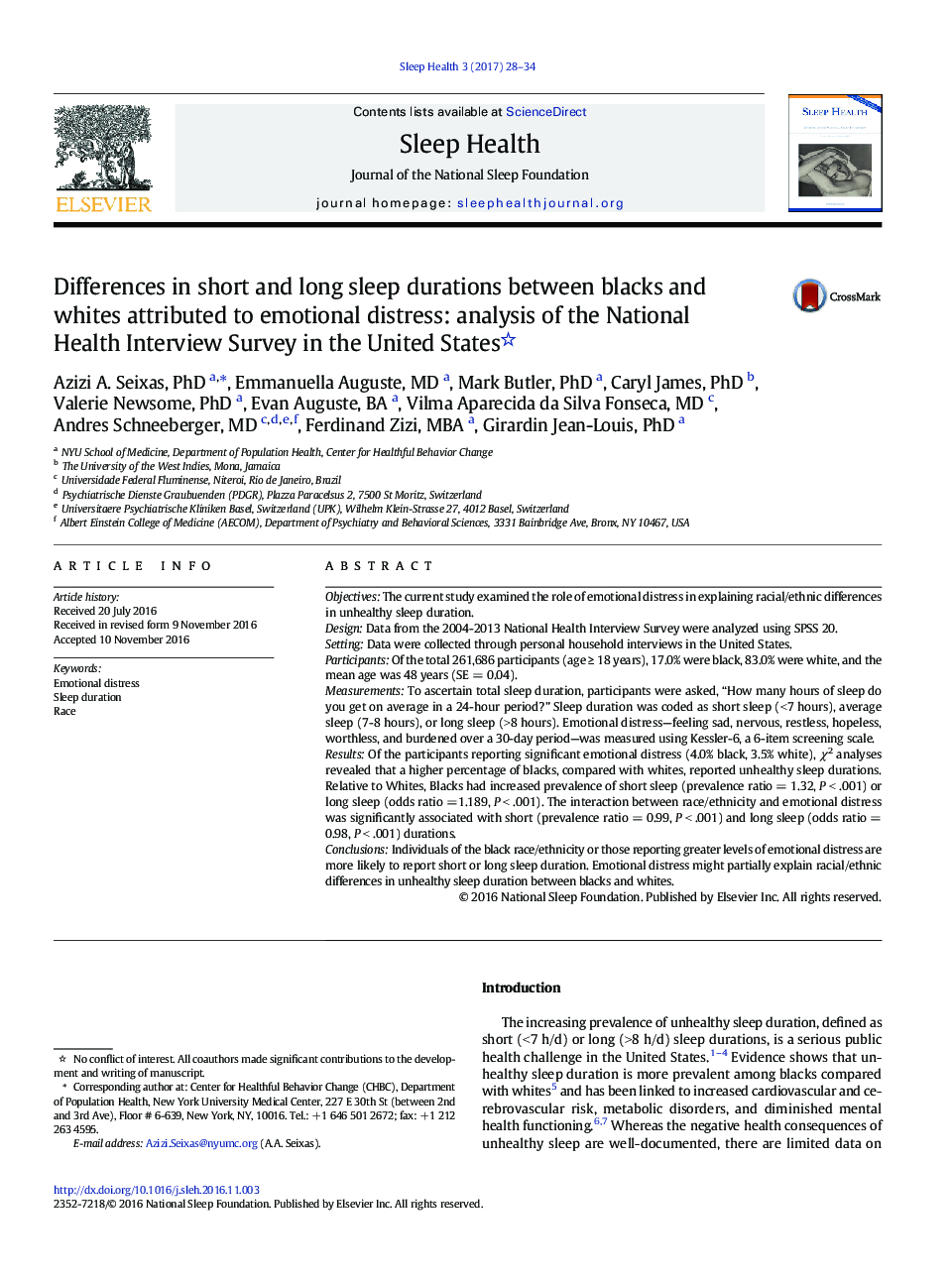| Article ID | Journal | Published Year | Pages | File Type |
|---|---|---|---|---|
| 5039572 | Sleep Health | 2017 | 7 Pages |
ObjectivesThe current study examined the role of emotional distress in explaining racial/ethnic differences in unhealthy sleep duration.DesignData from the 2004-2013 National Health Interview Survey were analyzed using SPSS 20.SettingData were collected through personal household interviews in the United States.ParticipantsOf the total 261,686 participants (age â¥Â 18 years), 17.0% were black, 83.0% were white, and the mean age was 48 years (SE = 0.04).MeasurementsTo ascertain total sleep duration, participants were asked, “How many hours of sleep do you get on average in a 24-hour period?” Sleep duration was coded as short sleep (<7 hours), average sleep (7-8 hours), or long sleep (>8 hours). Emotional distress-feeling sad, nervous, restless, hopeless, worthless, and burdened over a 30-day period-was measured using Kessler-6, a 6-item screening scale.ResultsOf the participants reporting significant emotional distress (4.0% black, 3.5% white), Ï2 analyses revealed that a higher percentage of blacks, compared with whites, reported unhealthy sleep durations. Relative to Whites, Blacks had increased prevalence of short sleep (prevalence ratio = 1.32, P < .001) or long sleep (odds ratio =1.189, P < .001). The interaction between race/ethnicity and emotional distress was significantly associated with short (prevalence ratio = 0.99, P < .001) and long sleep (odds ratio = 0.98, P < .001) durations.ConclusionsIndividuals of the black race/ethnicity or those reporting greater levels of emotional distress are more likely to report short or long sleep duration. Emotional distress might partially explain racial/ethnic differences in unhealthy sleep duration between blacks and whites.
